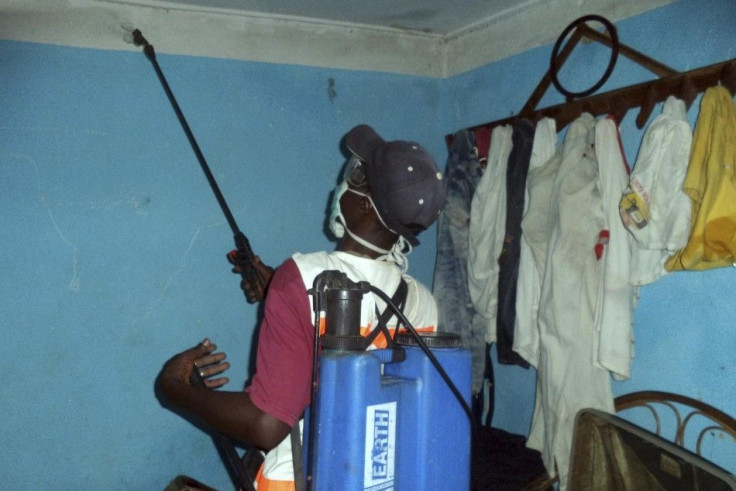Ebola Threatens Financial Viability Of Aviation Industry

The global aviation industry could once more be under siege as the Ebola virus crisis expands with the discovery of a second patient in the US who flew via a commercial flight.
In the past, commercial air carriers suffered from low passenger numbers over terrorist attacks such as the 9/11 in 2001, natural disasters like the Icelandic volcanic eruptions in 2012 and air mishaps such as the twin tragedies of the missing or downed Malaysia Airlines jets.
Shares of major airlines declined on Thursday on news that 29-year-old Amber Joy Vinson, who contracted the Ebola virus after she treated Thomas Eric Duncan, flew on Frontier Airlines Flight 1143 from the Cleveland Hopkins International Airport to Dallas/Fort Worth on Wednesday.
On Thursday, Vinson was diagnosed by the Centers for Disease Control and Prevention (CDC), with Ebola. Duncan, a Liberian, was the first patient diagnosed with the Ebola virus in the US. He died on Oct 8. Vinson is being treated at a special isolation unit at the Emory University Hospital in Atlanta.
On the same day, shares of American Airlines went down 1.5 per cent, of Delta declined 2 per cent, United Continental by over 3.6 per cent and Spirit Airlines by about 3 per cent, the Washington Post reports.
Actually, shareprices of American Airlines has tumbled down by 15 per cent since the start of October, while Delta's dipped 13 per cent for the same time frame and United Continental by 14 per cent. Stocks of Spirit Airlines slipped 21 per cent and Southwest Airlines 13 per cent.
CDC Director Thomas Friedsen believes that Vinson should not have been allowed to board a commercial aircraft, which explains why travelers are now more hesitant to fly with pressurised air inside airplanes circulating among passengers.
But CNN reports that Vinson's temperature was 37.5C, below the CDC threshold of 38C, which explains why she was not barred from flying Frontier.
This is, however, not the first time that a health problem caused financial ruin to the aviation industry. In 2003, the Asian airline industry reeled from the impact of the severe acute respiratory syndrome (SARS), although Ebola is not spread airborne.
Moreover, the nurse did not puke while on the flight and was not bleeding, keeping to a minimum the chances that the other passengers' health were placed at risk.
While Vinson did not show signs or symptoms of the deadly virus while aboard Flight 1143, the proximity of the period between the evening flight and first report of illness the next day led the CDC to reach out to the rest of the 131 passengers on board the same trip.
Frontier said the jet arrived in Dallas/Fort Worth at 8:16 pm local time and stayed overnight at the gateway for thorough cleaning before it flew out the next day. "The safety and security of our customers and employees in our primary concern ... Frontier will continue to work with CDC and other government agencies to ensure proper protocols and procedures are being followed," the airline said in a statement.
YouTube/ARIRANG NEWS




















